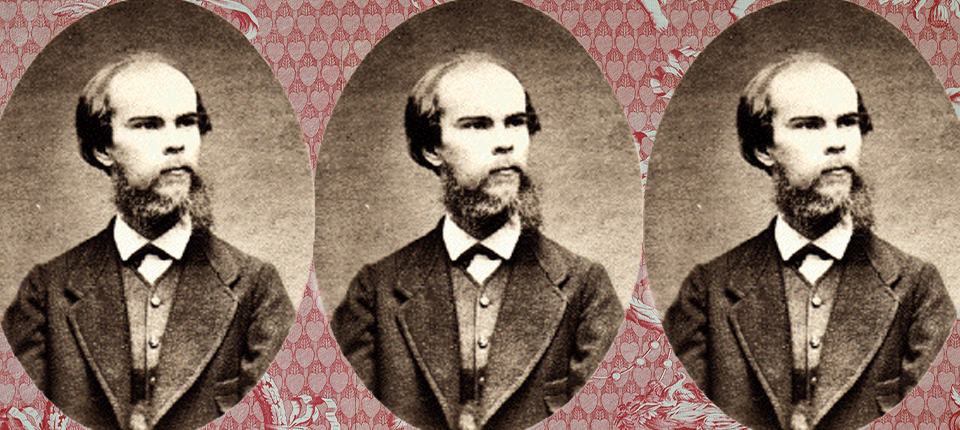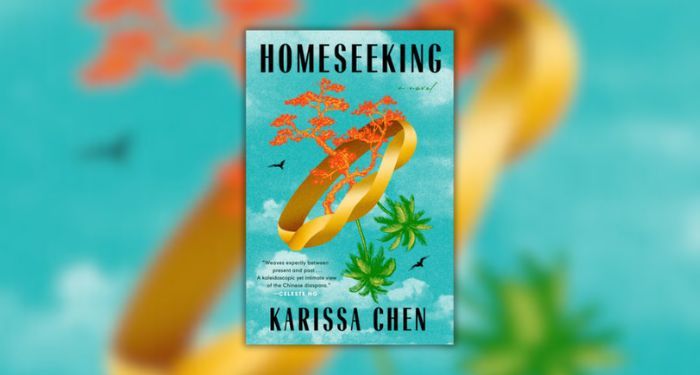Short stories can do things novels cannot because they’re short. They’re limber and can dart in and out of close-fitting places. They can be weird and daring in ways that novels cannot always sustain. Joy Williams writes in, “8 Essential Attributes of the Short Story (and one way it differs from a novel), “A novel wants to befriend you, a short story almost never.” Between the pages I’m not looking for another friend; I’m seeking an experience of bewitchment. To be possessed by language in full-bodied immersion.
Full-bodied, because… emotion. Emotions as experienced physically in the body. In a woman’s body. My body. As in Dar Williams’ song, “When I was a Boy” I was a kid that you would like/Just a small boy on her bike, until a week after I turned 13, when I got off my bike and discovered a rust-colored stain on the seat announcing that I’d “become a woman.” Fuck! I thought. I was not pleased or proud or relieved or excited to get my first period. To the contrary. What I had outrun until that afternoon had finally caught up to me.
How did I come to terms with growing a woman’s body? I did what I do when faced with something I don’t understand: I read into it, and then I wrote into it; and through this, I found my material. Women’s bodies are all over my collection, Half-Lives—performing, misbehaving, seducing, challenging. All the stories feature women as protagonists. In one, a woman lists her vagina on Airbnb. She uploads her listing, fields inquiries, accepts her first guests… all the while musing on what it means to have a vagina—everything from the makeup marketed to it to the staff it requires. A deeply problematic renter appears, and what she does about it causes the welcome end of the hot dry summer. Another story is a contemporary retelling of “Sleeping Beauty” where Beauty is a yoga instructor in a coma (you’ll just have to read the story). In the title story, a middle school teacher chaperones a trip to a nuclear power plant secretly carrying inside her the unformed body of her identical twin.
To be a woman in the world today is to have a body that is appraised, despised, endangered, and idealized. Medicalized and misdiagnosed, restricted and performed, colonized and commodified. Gendered, dominated, threatened, shamed and all the while, lived.
Here then, are some recommendations of short story collections that complicate the conversation about women’s bodies.
Her Body and Other Parties by Carmen Maria Machado
No list of story collections about women’s bodies would be complete without Machado’s dazzling, multi-prizewinning Her Body and Other Parties. Flowing between horror, fantasy and satire, these eight stories examine women’s bodies and psyches in contemporary society. In “The Husband Stitch” a wife’s head is held in place by the green ribbon around her neck; in “Mothers” a protagonist contends with her abusive lover Bad and their alleged daughter. There are ghosts of murdered women, doppelgangers and rapes. Women who slowly lose their bodies are sewn into the dresses sold at a fashionable boutique, and a fat old body lives as a specter in the house of the woman who surgically reduced it. Machado puts women’s bodies front and center tackling deeply rooted issues of sex, trauma, autonomy, and power.
The Long Swim by Terese Svoboda
In Svoboda’s latest collection of stories, women’s bodies, especially mothers, upend everything. From the female fetus directing the mother in “Mexican Honeymoon,” to the daughter rubbing lipstick over Mom’s lips at the morgue in “Decorum Stinks.” In between, there are all the missing bodies of women who have disappeared in “The Haight” during its hippy heyday, the bodies of orphans gyrating inside a vending machine trying to attract adopters in “The Orphan Shop,” the nipple fiercely repossessed in “The Last Night,” the abused body of the nude woman seeking sanctuary in “London Boy,” what’s leftover of the woman’s body in “Loose Lion,” the naked woman appearing to convince Mom that it’s her lover visiting in “Rex Rhymes with It,” and the title story of the mothers who applaud the turtles who don’t show up to lay their eggs.
Some Of Them Will Carry Me by Giada Scodellaro
The Black women in Scodellaro’s collection of 35 brilliantly condensed stories experience dislocation in sensual detail. In “A Triangle” as water rises to her thighs in a surreal rainstorm, a woman watches another through a fourth-floor window after following her home because of her hair: “It was the curl of it on her neck and on her forehead, the way it looked like a question mark, circuitous and pleading.” In “The Ethics of Piracy” a woman walks naked through the Holland Tunnel. The stories, some as short as only a paragraph, are cinematic, absurdist and enigmatic, and one emerges from them grateful for the opportunity to enter this author’s hypnogogic world.
Craft: Stories I Wrote for the Devil by Ananda Lima
In Lima’s debut story collection, a woman sleeps with the Devil at a party in her 20s and is visited by him over the years as she ages and lives her life as a writer. The experience is formative but unrepeatable as her body is completely overcome, and she is lost to lust if their skin ever touches. In the stories Lima writes, women’s bodies are central: an immigrant, reflecting on how her body remakes itself through cell renewal, realizes her whole body has become American; a woman ingests her own body (a miniature version dispensed from a sinister vending machine); another imagines her adult body comforting the memory of herself as a child, running her fingers through her hair. Even the writer within the book is not immune to the embodiment of her own creations as when she attempts to inhabit a ghost she’s writing and experiences her own body losing its shape.
Dragon Palace by Hiromi Kawakami, translated by Ted Goosen
Kawakami is one of Japan’s most popular contemporary fiction writers, and in her latest collection, translated by Ted Goosen, she explores transfigurations and cohabitations in eight otherworldly stories. Bodies in Dragon Palace are regularly freed of the conventions of their forms, and people, animals and spirits come and go with the ease of folk tales. In “Fox’s Den,” a romance between a female caregiver and an elderly man who is sometimes a very small fox, she remarks that her naked body is nothing like those of the women in his pornographic magazines and his response is, “Both are necessary.” Older women parade around naked, a goddess controls her followers with sex, a woman is handed from husband to husband until she can return at last to the sea, and in the titular story a great-grandmother returns in the body of a shrunken teenager that the narrator tosses across the room like a doll.
Double-Check for Sleeping Children by Kirstin Allio
The twenty formally inventive, poetically charged stories in Double-Check for Sleeping Children record the consciousness and embodiment of women. In “Ambush,” a former dancer finds herself in unfamiliar territory, middle-aged maiden-prey. In “Naiad,” a mother stares up at a lurid, suggestive stain in the cracks in the ceiling above the bed as her young daughter confesses with seething hostility that she’s lost her virginity. In “Stand of the Tide” a woman crouches outside her own bathroom window to watch her sister-in-law bathe. At the end, the narrator says, “I reversed course, backed carefully away from the window of my own house, letting my sister-in-law’s body be.”
Every Drop Is A Man’s Nightmare by Megan Kamalei Kakimoto
Megan Kamalei Kakimoto’s debut collection uses magical realism to center the lives of contemporary Hawaiian women of color in a landscape rich with cultural wisdom and haunted by colonization. In Every Drop Is a Man’s Nightmare, sexuality intertwines with mythology, and generational memory speaks to identity. A woman’s fears around her pregnant body are set into motion from a long-ago encounter with a wild pig; a widow sees her deceased lover in a giant flower, a 12-year-old grapples with her first period while learning about precolonial Hawaiian history, a mother of six finds a Menehune (mythical forest-creature) in her clothes dryer, a woman visits a salon where pubic hair is waxed and then paid for by a “trait exchange.” Kakimoto’s collection is rich, wrenching, and visceral.
Women! In! Peril! by Jessie Ren Marshall
Marshall, a playwright, makes her prose debut in Women! In! Peril! a collection of twelve stories that slide slyly between realism and surrealism. In one story a woman must contend with her wife’s mysteriously pregnant body, another is told from the perspective of Annie, a determined sex bot, and yet another illustrates the racialization of an Asian American girl. These stories are darkly funny explorations of queerness, parenting, sex, race, gender, divorce and the state of humanity.
Good Women by Halle Hill
Hill’s debut collection explores the private lives of 16 Black women living in Appalachia and the Deep South. The women in these stories are shown in their multitudes—hungering, escaping, observing, and making sense of their lives. In darkly funny stories women wrestle with weight and pregnancy, as well as parents, police, and evangelism. Hill pairs sex scenes with the frustrations and disappointments and violences that make them all too true. These are stories of Black women’s bodies and interiors seen and witnessed.

























































